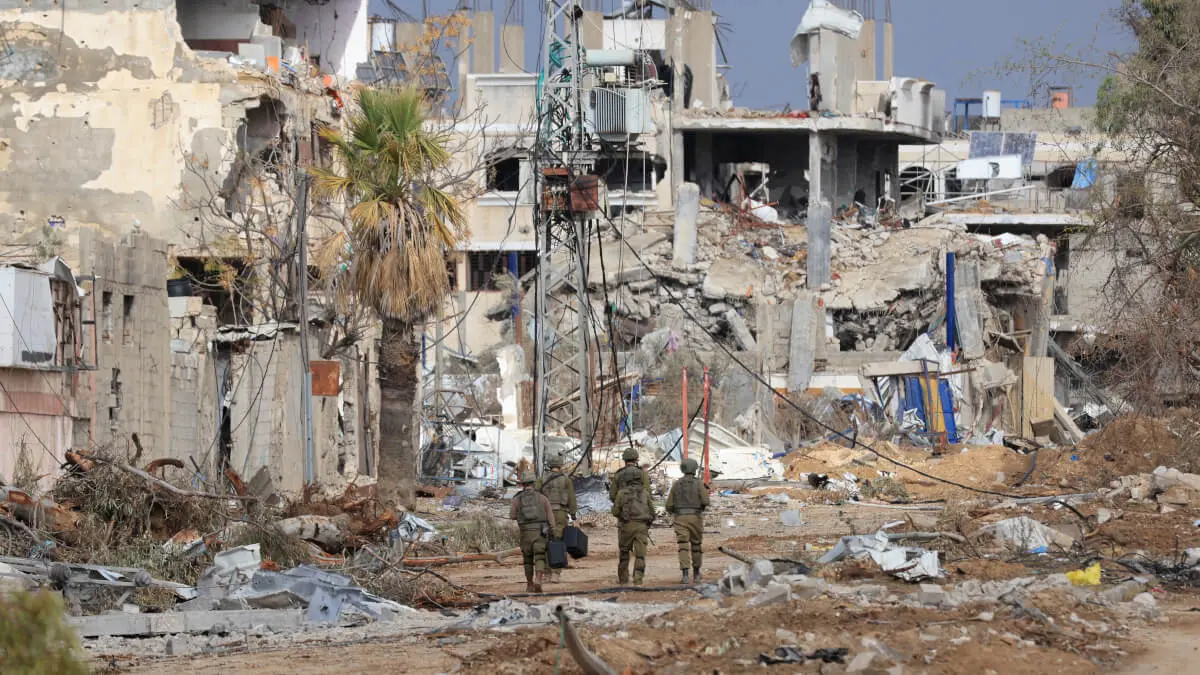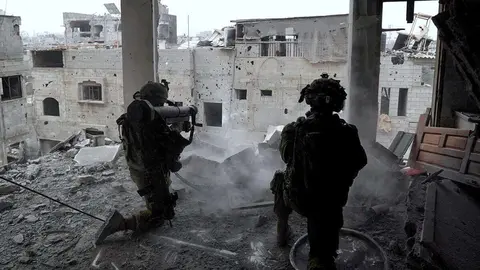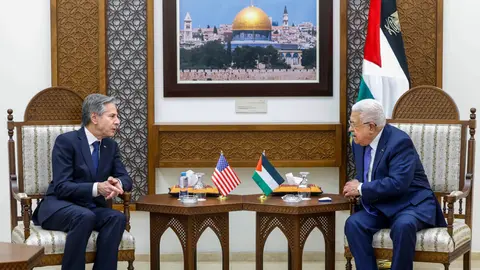Plans for post-war in Gaza

The Gaza Strip, the Hamas fiefdom now reduced practically to rubble by the Israel Defense Forces (IDF) in a war costly in terms of victims and destroyed material means, could have been Singapore, synonymous and emblematic of a prosperity as rapid as it is astonishing. So says Henrique Cymerman, probably the journalist with the world's most voluminous and influential agenda, a privileged interlocutor of the most relevant personalities in the governance of decisive countries and institutions. Such a provocative statement would have been possible, in his opinion, if the huge sums of money that the territory has received over the last twenty years had been used to build development and prosperity.
The Porto-born Israeli argues that we will soon know the enormous cost of the construction of the Gaza "metro", i.e. those more than 800 tunnels, located at great depths and equipped with sophisticated services and infrastructure, and whose destruction is, along with that of Hamas itself, Israel's main objective. If it has been dubbed the "underground", it is because its intricate and extensive network is even larger than the London Underground. Investigations will soon begin, both into what happened on the fateful 7 October - never have so many Jews been killed or kidnapped in a single day since the Holocaust - and into the conversion of Gaza into the launching pad for a war that, far from being local, involves to varying degrees the entire Middle East, Europe, Asia, America and Africa.
If the conflict does not end up setting the entire planet on fire, this war will have served first and foremost to make Israel realise that the Palestinian problem cannot be ignored, and that it requires a solution that has any prospect of lasting in the long term. Such a solution must have the symmetrical counterpart of genuinely guaranteeing Israel's security, which, as this war has shown, was not. This is evidenced by the multi-front offensive that Iran, proxying for proxies, had enacted in the clearly mistaken belief that Israel was on the brink of civil war, interpreting the massive demonstrations against Benjamin Netanyahu's plan to curtail the powers of the Supreme Court as requiring little more than a terror-spreading massacre.
Tehran surely also foresaw that a new and extremely violent intifada would immediately break out in the West Bank, which would facilitate the prophesied design in 2015 by Supreme Leader Ali Khamenei of the disappearance of the State of Israel within 25 years, later corrected downwards by the ayatollah himself. This time the intifada has not happened, although Hamas's popularity in the West Bank has soared.
Apart from the public declarations, fully active but silent diplomacy has been working flat out in recent months, preparing in some way for the post-war period. Obviously led by the US, but closely linked to Israel, it is trying to secure Saudi Arabia's commitment and full involvement in the effort. Riyadh is demanding a solution to the Palestinian problem, a demand that has in fact been a constant. But Arabia, which is engaged in a far from hidden struggle with Iran, would need the support of Egypt (the most populous country in the Arab world), the United Arab Emirates (the most technologically developed territory since the Abraham Accords), Jordan (because of its longer border with Israel) and Morocco (because of its growing leadership both in the Maghreb and in its African projection).
At the same time, the Palestinians would have to find leadership from someone who is committed to a realistic peace, i.e. not only recognising Israel's right to exist but to do so in security - the exact opposite of what Hamas's founding document, which has never been rectified, advocates.
It is clear that Hamas, [Iran's] "useful idiot" in the words of the British prime minister, not only triggered the immediate Israeli invasion of Gaza with its 7 October massacre, but also sought to dash the hopes of the budding agreement between Tel Aviv and Riyadh. This leaves Hamas, at least its military organisation, out of the equation for a post-war settlement, and will require an unavoidable reorganisation of the Palestinian Authority.
For its part, the United States, which in addition to putting together an international coalition to counter Yemen's Houthis in the Red Sea, has sent serious warning signals to Iran, would bless an ambitious and gigantic reconstruction programme for Gaza, with special funding from Arabia and the UAE, in addition to the usual EU and US funds, albeit much more controlled in their use and final destination than has been the case so far.
If Hamas would be left out of the post-war equation, the same applies to Israeli extremists, now represented in Netanyahu's government, especially by Ministers Smotrich and Ben Gvir. Bibi Netanyahu himself will probably have to step aside once the conflict is over.
There are already several prominent actors working on a possible Peace Conference for all of this, also advocated by the EU, where the essential lines would be discussed. Some recall the hopes that arose precisely at the Madrid conference in 1991, and would like a Madrid 2. However, there are voices that also warn that the "patent anti-Semitism" of the extreme left wing of Pedro Sánchez's government could also leave Spain out, not only from this hypothetical negotiating table but also from the corresponding projects and economic business derived from them.
It is hard to imagine, but why not conceive that a Gaza reconverted into a new Singapore is possible? And, consequently, a Middle East that is a driving force and projects its prosperity to a large part of the world. It would be a good idea not to remain on the sidelines of this hopeful design and really get on the good side of history.




